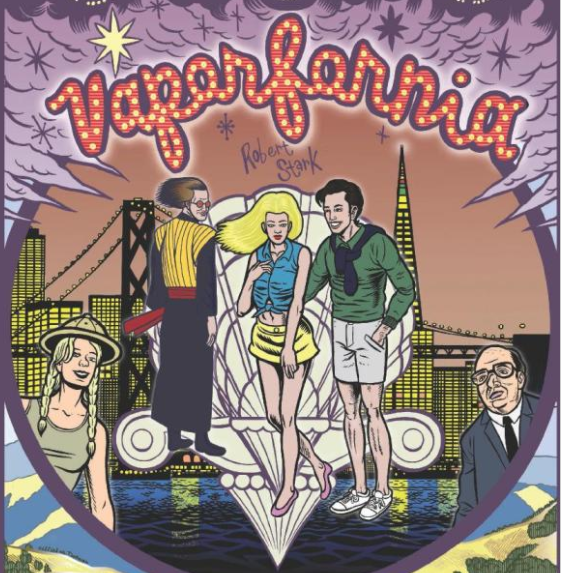In the Mouth of Pezness
 |
| "Lived any good books lately?" |
As a high school outcast with a budding interest in art and literature, I remember feeling a sense of envy in reading about the participants in interwar creative-destructive movements like Dada and Surrealism – or, for that matter, Fascism – for the reason that all of these painters and writers had like-minded contemporaries with whom to collaborate or squabble, whereas nobody else in my school seemed to share my self-ostracizing affinity for vintage nationalisms or was openly willing to acknowledge the faintest racialist sentiment. Retiring into a corner of the school library with a book of European propaganda posters in those days before the explosion of internet politics, I could believe that I was the last of my kind. Then, a few years ago, it occurred to me that, without my realizing it, my historical arts movement moment had found me in the dissident sphere of online nationalism. The creative ferment, the comrades, controversial personalities, struggles, debates, the sense of participation in important events, had all become real. But is this milieu so real – or is it to some extent, as retrofuturist poet Brandon Adamson now suggests, a “dark game of Candy Land” – a “situation where someone perceives that their actions and decisions are meaningfully influencing the course of events, but in actuality those actions are being directed and manipulated within a controlled environment by outside forces”?
 |
| Are we rats? |
Online nationalists, Adamson worries, have been “reduced to regurgitating the latest viral meme mantras and cornball lingo that’s been pre-packaged, shrinkwrapped and spoon-fed to them, straight from the imageboard ‘meme factory’ cesspools, Discord honeypots and compromised group chats.” The uncritical approach to non-activism has, Adamson indicates, not only rendered nationalism ineffectual and self-defeating, but created the conditions for an elaborate series of virtual laboratory experiments. “People just gobble it up like candy” – a motif pursued throughout the book. “Just go through the motions, and you’ll be rewarded with clout,” this book smirks, unimpressed: “To paraphrase an old saying, never look a Pez dispenser in the mouth.” Among the book’s most important ideas is that the conventional wisdom on the “fed” archetype and on “fedposting” generally is outmoded and overly narrow. Adamson’s thesis is that the “fed” we encounter online might be less interested in prodding patsies into bomb plots than in maintaining a tepid equilibrium in the political ecosphere. “Unfortunately, few of us are completely resistant,” he acknowledges: “I wish I could say that I was totally immune to this form of manipulation, but indeed I have […] enthusiastically been swept up in many memes and diversionary ‘ops’ over the years. It’s difficult not to be,” he confesses. “People want to be part of something fun. […] Authentic dissident political advocacy on the other hand is an isolating and dreary business.”
Reading what may go down as the book’s most controversial chapter, “The Rat Meat Market (An Interlude)”, I almost wondered if I had stumbled into one of Hipster Racist’s Hipster Racist fan fictions. I think that The Rats of Nationalism would stand on a more solid footing if this idiosyncratic foray into “MKUltra-lite” intrigue had been excluded, as it is this chapter to which Adamson’s critics are likely to have recourse in attempting to discredit the overarching thesis; but, even if nothing Adamson has written in his book is true, it is now much more likely to become true as a result of his having written it. Is Adamson just petitioning the federal government to send a cute spy to watch old movies with him? To his credit, he ends the “Interlude” with this disarmingly Adamsonian passage: “Maybe a certain percentage of this book is just me thinking out loud and talking out of my ass, while the remaining percentage involves me relaying things I know for a fact. I won’t reveal the exact numerical breakdown because I’m not entirely sure myself, and I hate math.” To do the poet-polemicist’s arguments justice and to receive the author’s more specific insinuations of disingenuous candy-vending, people will need to read The Rats of Nationalism in its entirety; and, as he points out, the impulse toward a “Post-Rat Nationalism” and the consciousness of “another type of fed” bear potentially urgent relevance not only for the Alt-Right, but for any figure involved in counter-establishment activism: “If you’re active (even in a limited capacity) in political circles of any kind on social media, there’s a very good chance you’re following and interacting with this type of fed regularly, without even realizing it.” Consequently, The Rats of Nationalism might even be the most important book you read in the current year.
Rainer Chlodwig von K.
Rainer is the author of, most recently, Drugs, Jungles, and Jingoism.




Comments
Post a Comment